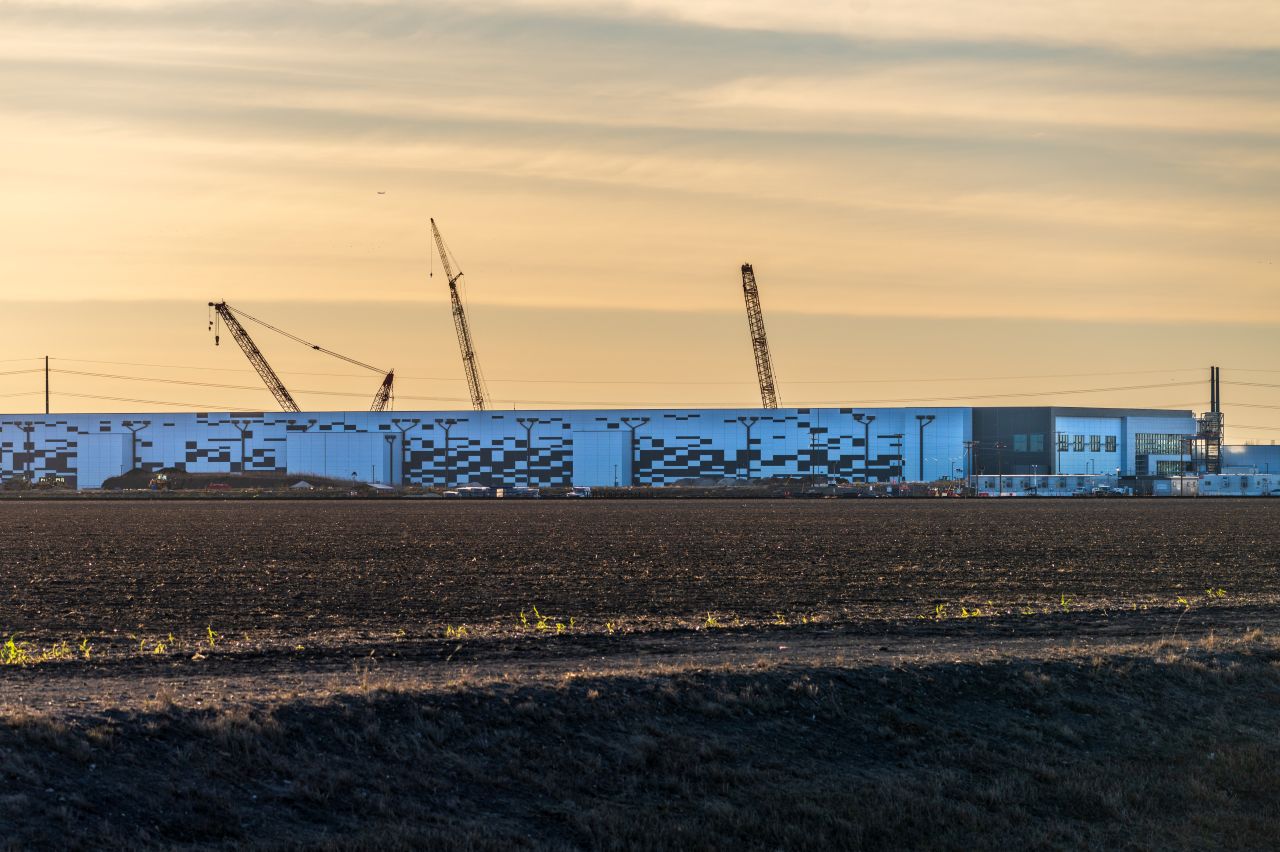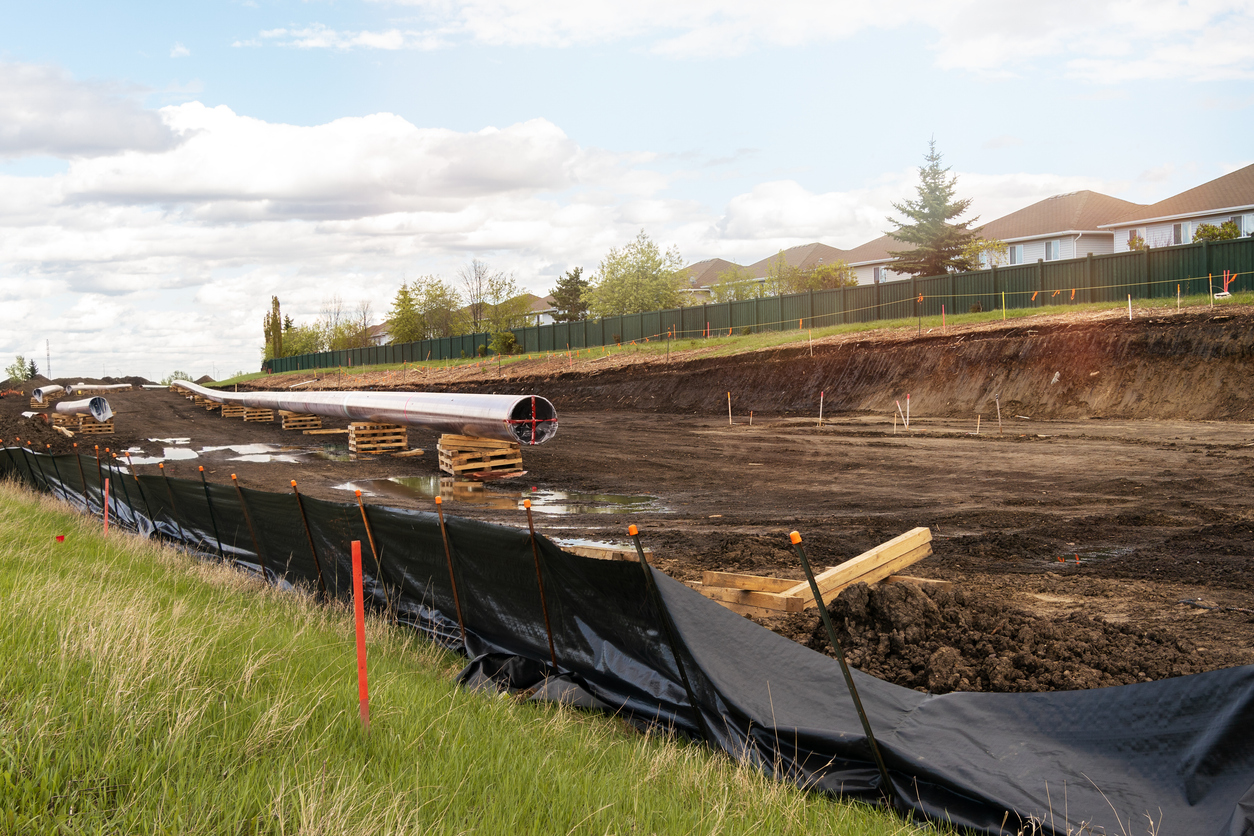Despite history of pollution violations, fertilizer plant receives taxpayer subsidies to expand

In late August, the U.S Department of Agriculture awarded a massive fertilizer and chemical manufacturing plant in Hopewell, Virginia, a nearly $12 million grant to increase its production of the fertilizer ingredient ammonium sulfate. The AdvanSix Resins and Chemicals plant has a long history of environmental violations and emits pollutants that threaten human health, including sulfur dioxide and fine particulate matter.
The 482-acre AdvanSix Resins and Chemicals facility, beside the James River southeast of Richmond, is the nation’s largest ammonium sulfate manufacturing plant. Originally constructed in the early 1900s by DuPont, the plant is surrounded by a community, Hopewell, that has a population of 23,000 that suffers from a cancer mortality rate almost double the state average and a median household income about half the state average.
Hopewell is infamous for the 1975 Kepone Disaster, in which the powdery, white insecticide was discharged from the AdvanSix plant, then owned by Allied Chemical Corporation, into the James River for nearly a decade. Like DDT, Kepone takes years to break down. The state banned commercial fishing in the James River from Richmond to the Chesapeake Bay for 13 years as authorities struggled to contain the chemical’s widespread contamination.
The expansion of the AdvanSix plant is part of a national boom in U.S. fertilizer production over the last decade and a half, fueled in part by hydraulic fracturing’s downward pressure on the price of natural gas, which is a primary ingredient in nitrogen fertilizer. The nitrogen fertilizer industry releases vast amounts of water and air pollution and greenhouse gases.
Nineteen new or expanded plants that make chemical fertilizer or ammonia (which can be used as fertilizer) have been built since 2012, and 33 new or expanded projects are proposed or under construction, according to public records on file in the Oil and Gas Watch database.
Despite this growth, fertilizer prices more than doubled between 2021 and 2022, according to the U.S. Department of Agriculture (USDA). The recent USDA expansion grant will allow AdvanSix to increase its ammonium sulfate production by 195,000 tons per year, enough to provide 5,000 more farm operations with fertilizer.
Perry Hickman, USDA Rural Development Virginia State Director, said: “Grants provided to independent business owner like AdvanSix Inc. help them modernize equipment and adopt new technologies that create good-paying jobs and lower costs for farmers.”
Mike Hamilton, Vice President and Business Director of Plant Nutrients at AdvanSix, said: “This funding will support AdvanSix’s strategy to increase our production capacity of premium grade product.”
In July, the Southern Environmental Law Center, on behalf of a number of other environmental groups, petitioned EPA to object to the Virginia Department of Environmental Quality’s latest draft of the AdvanSix air pollution control permit, arguing that the company regularly violates the law and those living near the massive industrial facility suffer the consequences of environmental injustice. The petition states that compared to communities nationally, the three census tracts with residents closest to AdvanSix rank in at least the 99th percentile for cancer risk due to air toxics.
“AdvanSix bears a large degree of responsibility for Hopewell’s disproportionate air pollution burden: it is Virginia’s fourth largest emitter of nitrogen oxides, sixth largest emitter of fine particulate matter, eleventh largest emitter of sulfur dioxide, and largest emitter of ammonia,” states the petition. “Not only does AdvanSix release huge amounts of dangerous air pollutants into the community each year, but AdvanSix is also a notorious environmental violator.”
USDA documents show that the company, and USDA, do not believe the project will “have a disproportionately high and/or adverse human health or environmental effects on minority or low-income populations.”
Mark Sabath, senior attorney with the Southern Environmental Law Center, disagreed. He said the AdvanSix facility has been a chronic violator of federal and state air pollution laws and a frequent objector of enforcement by both EPA and the Virginia Department of Environmental Quality.
“Unfortunately, DEQ’s … permitting process for AdvanSix was deficient in several respects,” said Sabath. “They failed to provide the public with the required emissions information needed to assess the adequacy of the draft permit; failed to include adequate monitoring and testing requirements to assure the plant’s compliance with applicable air pollution control requirements; and refused to hold a public hearing on the draft permit despite significant public interest.”
Sabath said his organization plans to look into what the expanded production from the recent USDA grant could mean for the plant’s emissions.
In 2013, the company, operating under the name Honeywell Resins and Chemicals LLC, agreed to a consent decree that required the company to pay $3 million in civil penalties and upgrade pollution controls because of violations at the Hopewell site. According to the agreement, the company violated Clean Air Act limits on emissions of nitrogen oxide, benzene and other volatile organic compounds, and particulate matter. The plant also allegedly failed to comply with requirements to upgrade air pollution control equipment, to detect and repair leaks of hazardous air pollutants, and to develop safeguards on benzene waste.
In 2023, a release of ammonia and oleum, a form of sulfuric acid, from the plant led to a shelter-in-place for two neighboring facilities. EPA investigators found that the facility had failed to comply with mechanical integrity requirements, including excessive corrosion relating to piping systems and storage tanks, along with other shortfalls.
Lead photo: The AdvanSix facility in Hopewell, Virginia. Photo by the Richmond Times-Dispatch.















